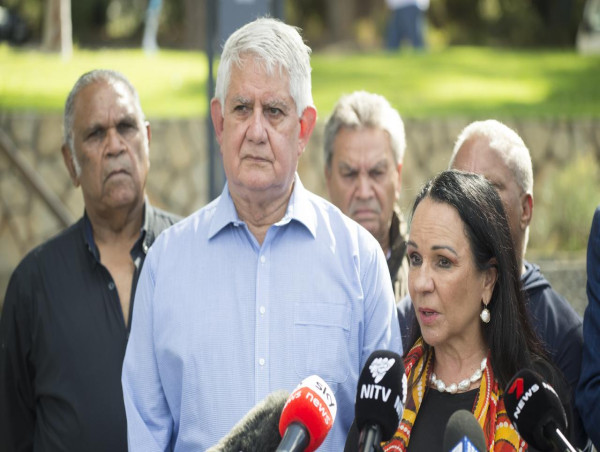Australia has the opportunity to give Indigenous young people hope, and end "futility syndrome", if it enshrines a voice to parliament, former federal minister Ken Wyatt says.
Mr Wyatt, who sensationally quit the Liberal Party over its opposition to the advisory body, on Friday said young people who couldn't see a future rebelled.
He encouraged Australians for and against the advisory body, which would be enshrined in the constitution, to speak up and "start the educative and informed discussion that needs to occur".
"We have a history across this nation of, every time a government changes, (abolishing) Indigenous advisory structures," Mr Wyatt told a parliamentary inquiry into the voice referendum.
"The reason (Indigenous people) want (a voice) enshrined is they want it protected so no government can come in (and abolish it)."
Mr Wyatt, who played a key part in developing the voice, said if the referendum looked set to fail, he would still want Australians to head to the polls.
The focus should instead be on the day after the result and what impact it would have, he said.
While people could be disappointed and angry in the wake of a 'no' vote, Indigenous people would continue to fight, Mr Wyatt said.
The idea that the voice could interfere with legislation once it was tabled in parliament was erroneous, given that it would be "far too late", he added.
Former deputy Liberal leader and Aboriginal affairs minister Fred Chaney said scare campaigns about enshrining a voice into the constitution were reminiscent of those about native title.
"We were all going to lose our backyards," he said.
The voice was not an affront to equal citizenship, Mr Chaney told the committee.
He expressed his disgust for Australia's treatment of Aboriginal communities and urged the committee - which is inquiring into the voice referendum legislation - to make decisions based on facts rather than ideology.
"If anything has destroyed the confidence of the Australian people in the parliament, it is the ideological carry-on in there that seems to be remote from the facts as most Australians see them," Mr Chaney said.
Mr Wyatt agreed non-justiciability was an essential feature of the voice's overall design, but said that didn't preclude Indigenous people - or Australians more generally - from appealing decisions.
Kimberley Land Council chairman Anthony Watson said the wishes and concerns of Indigenous people had long been ignored.
He said they were forced to adjust to a Western system of government and locked out of opportunities and decision-making.
Ineffective and discriminatory laws and policies maintained the status quo, trapping many Indigenous people in cycles of poverty.
Living conditions were only getting worse, Mr Watson said.
"For many of our people, you're either incarcerated, die an early death, or you barely make it through life," he said.
"I've lost a lot of friends and it's getting lonely when you get older, with only a few elders left.
"(A) voice to parliament is a step in the right direction. It will help us achieve equality and will create a system that will support our people to flourish and prosper."
The voice referendum, to be held between October and December, will be Australia's first referendum since 1999 and the first for about 6.4 million Australians.
Changing the constitution requires a double majority of voters, either at a national level from all states and territories or in at least four of the six states.
Every dollar and every conversation that takes Australia towards a voice to parliament will be critical, according to the Paul Ramsay Foundation - one of the philanthropic foundations that have pledged a combined $17 million to the 'yes' campaign.
Some 31 players in the philanthropic sector, including the Paul Ramsay Foundation, the Myer Foundation and the Oranges & Sardines Foundation, unveiled their support for the voice to parliament on Friday.
First Nations people are resoundingly in favour of the voice, with research published on Friday showing 83 per cent support would vote yes if the referendum was held now.
Four per cent are undecided, while 11 per cent would vote no, a survey conducted by Australian Polling Council member YouGov found.



